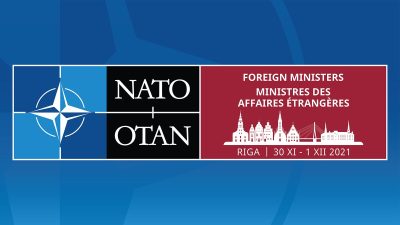NATO Summit in Riga Unlikely to Bring Unity to Increasingly Divided Atlantic Bloc

All Global Research articles can be read in 51 languages by activating the “Translate Website” drop down menu on the top banner of our home page (Desktop version).
To receive Global Research’s Daily Newsletter (selected articles), click here.
Visit and follow us on Instagram at @crg_globalresearch.
***
NATO has consistently spread hysteria about the alleged strengthening of Russian military personnel near Ukraine, and has once again escalated this narrative. The NATO summit in Riga on Tuesday and Wednesday served as another round of aggressive and provocative posturing against Russia, but it is unlikely to unify the Atlantic bloc that is becoming increasingly divided.
The Atlantic bloc continues to accuse Moscow of non-existent threats in order to justify their own strengthening of troops near Russia’s borders and to carry out various military manoeuvres. The foreign ministers of NATO also discussed in Riga other important current affairs, such as the migration crisis on the Polish-Belarusian border.
Ahead of the meeting in Riga, Belarusian President Alexander Lukashenko announced that tens of thousands of NATO soldiers were at his country’s border and that the West was using migrants to restrain the Belarusian army in the event of a conflict with Russia. He warned that the Belarusian army will not be idle if there is a conflict on the Russian-Ukrainian border or in Donbass.
Lukashenko’s argument is curious though as it was Belarus, and not the West, that brought tens of thousands of migrants to the borders of Poland and the Baltic countries. This was Lukashenko’s response to the West’s pressure and sanction campaign against his government following the 2020 presidential election. He now complains though that the migration weapon that he himself aimed against the European Union is now being used to restrain the Belarusian military.
NATO countries are also using the migration crisis for its own purposes by accusing Moscow, without evidence, of being involved in Minsk’s actions against Poland and the Baltic countries. In this way, NATO attempts to create a justification to deploy its troops near Russia’s borders, which of course will not be for the purpose of confronting the migration crisis.
Ahead of the meeting in Riga, NATO Secretary General Jens Stoltenberg also stated that the proposal to hold a Russia-NATO Council meeting remains in force since the Alliance is supposedly committed to maintaining a dialogue with Moscow. At the same time, he called on Moscow to be more transparent in its actions and stressed that there are NATO battle groups in the Baltic states and Poland, noting their readiness to resist any “aggression.”
However, despite Stoltenberg’s claims, Moscow has previously stated that it has no information about NATO’s plans to establish a dialogue. In this way, NATO maintains a pressure campaign against Moscow, but at the same time claims that it wants to build a dialogue.
This is further complicated because of the fact that NATO members do not have the same position and policies towards Russia. It is evident that the Anglosphere in NATO, along with their Polish and Baltic proxies, are the most enthusiastic for confrontation with Russia when the rest of Europe is becoming increasingly indifferent or opposed.
Take for example that only on Tuesday, the Greece-Russia Cooperation Protocol was signed and will see the two countries strengthen cooperation in tourism, energy, transport, science and technology, cultural matters and issues relating to tax administration. It also comes as France, which is still critical of Russia in some regards, continually calls for “strategic autonomy” from Washington and improved relations with Moscow.
None-the-less, as the US and UK are the most influential and powerful countries in NATO, the Atlantic alliance’s course towards Russia remains largely the same as during the Cold War era. Due to this, NATO are promoting anti-Russian hysteria to create an appropriate atmosphere so that all responsibility for a possible escalation can be blamed on Moscow. This is despite the fact that Moscow repeatedly calls for de-escalation and stresses that it has no interest in military confrontations.
As NATO is becoming increasingly divided into two blocs, prominently the Anglosphere and its Baltic-Polish partners against the rest of continental Europe, which also does not account for a rogue Turkey, the bloc is constantly looking for enemies, real and imagined, to justify its existence. As the alliance was created to oppose the Soviet Union, it has struggled to find a justification for its existence after European communism fell in 1991.
In the context of competing interests within NATO, attempting to remain relevant, and a general disinterest amongst most of NATO to confront Moscow, the chances of the alliance making a united front against Russia are weak. In fact, many continental European countries fear that a sustained policy of so-called deterrence could further undermine regional stability, which will of course negatively affect the security of some NATO members.
In this way, it is unlikely that NATO achieved much during the two-day meeting in Riga as state interests among the members are being prioritized over Washington’s anti-Russia interests being enacted under the NATO platform.
*
Note to readers: Please click the share buttons above or below. Follow us on Instagram, @crg_globalresearch. Forward this article to your email lists. Crosspost on your blog site, internet forums. etc.
Paul Antonopoulos is an independent geopolitical analyst.
Featured image is from InfoBrics

